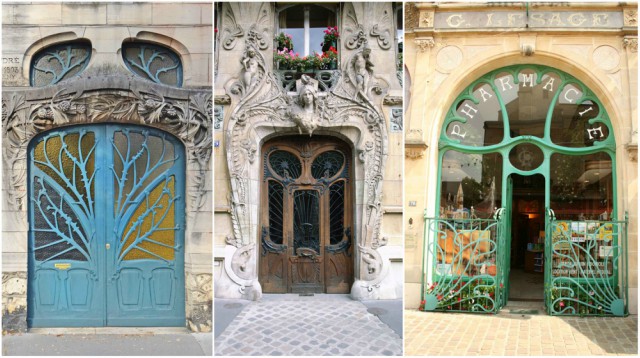From about 1890 to the beginning of World War One, an international style of modern art known as Art Nouveau became fashionable throughout western Europe and the United States.
It was something out of the ordinary, and it confronted the eclectic historical styles that had previously been popular. Practiced in the fields of art, architecture, graphic work, illustration, and applied art, Art Nouveau drew inspiration from the natural world and the variety of geometric forms that surround people, thus becoming an integral part of their everyday life.
It was the first modern style to flourish at the dawn of the 20th century. It was quite revolutionary for the era, which is reflected in the name Art Nouveau–or New Art.
Many would disagree that Art Nouveau was an architectural style, claiming that it was really only used for decorative detail, and this debate is still ongoing. But one thing is certain: Art Nouveau spread like wildfire throughout the European continent and the United States and it’s fair to say that for many it became a way of life.
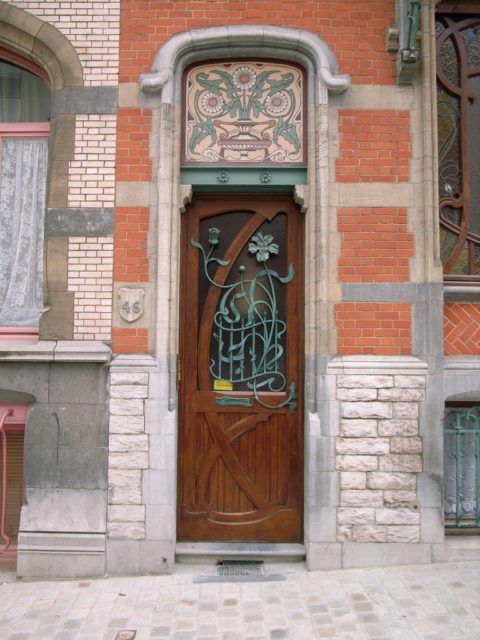
In an era of industrialization, Art Nouveau defied the norms of contemporary society by emphasizing craftsmanship and traditional techniques over sloppy mass production. Stunning examples of Art Nouveau architecture can still be seen throughout the world, offering a visual delight for everyone keen to discover them.
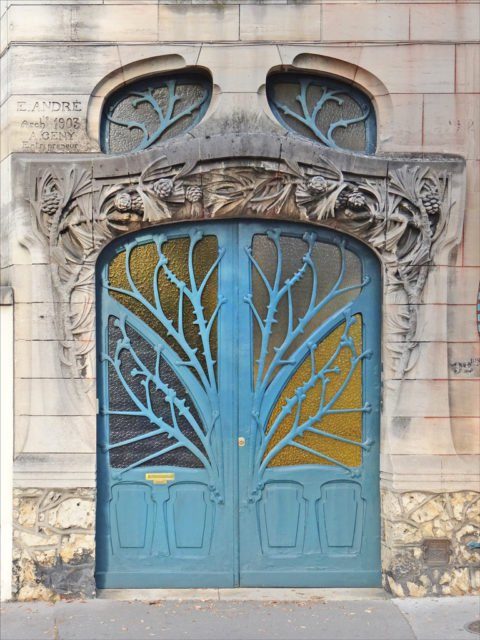
From the most colorful exteriors to custom furnishings and nature-inspired designs of the interiors, Art Nouveau buildings create an atmosphere of artistic freedom that no other architectural style can match. And in between are the Art Nouveau doors that reflect the subtle elegance of this style.
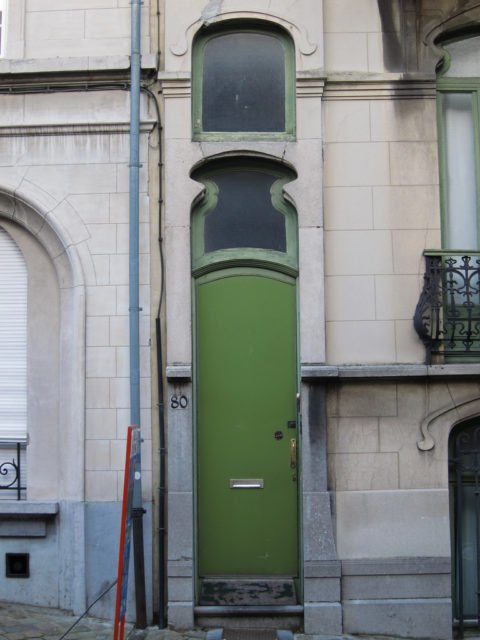
As soon as you see an Art Nouveau door, you know that there is another world hiding behind it and you simply must have a look at that mysterious world.
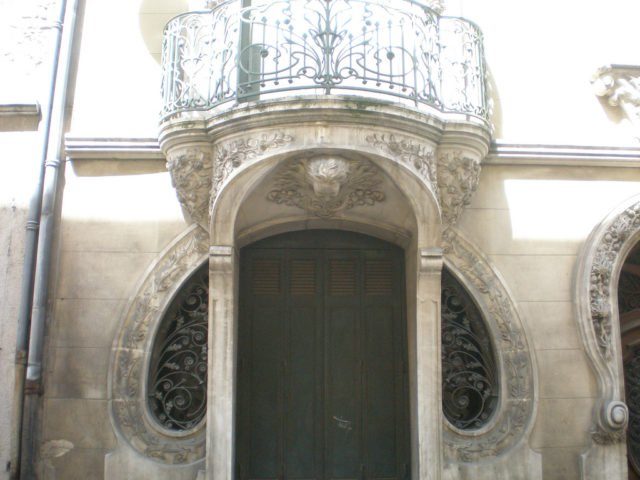
Out of the thousands of Art Nouveau doors found throughout the world, we tried to make a selection of the most stunning among them. It was a difficult task, but we believe we’ve managed to choose the most beautiful examples.
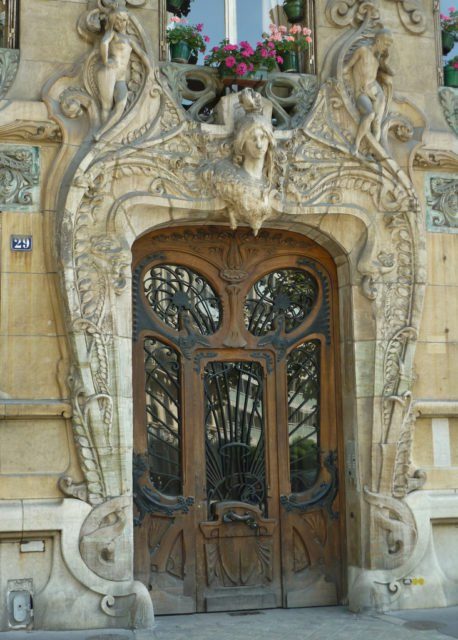
Apart from the astonishing beauty of these Art Nouveau doors, this story will showcase the most important aspects of the development of Art Nouveau in the towns decorated by some of the most amazing doors designed and built in this unique style.
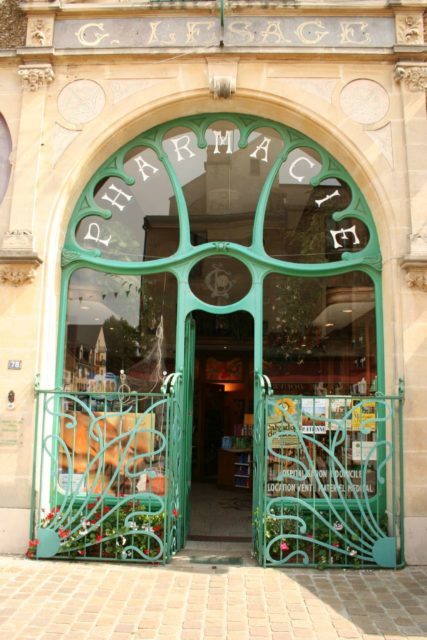
So welcome to our virtual museum of doors! There is no admission fee, but be prepared to hate every other door that is not Art Nouveau.
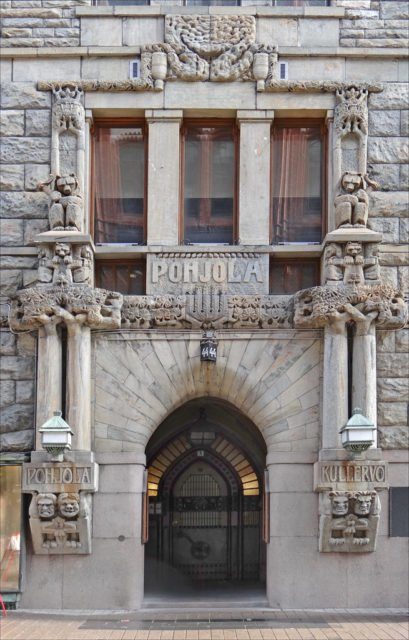
We will start off in Brussels, the town considered by many as the Art Nouveau capital of the world. Anyone who has visited the city knows that there aren’t many arguments to oppose this claim. Brussels might be small when you compare it to other European cities, but, on the other hand, it is a place full of architectural wonders, including some of the most captivating Art Nouveau buildings.
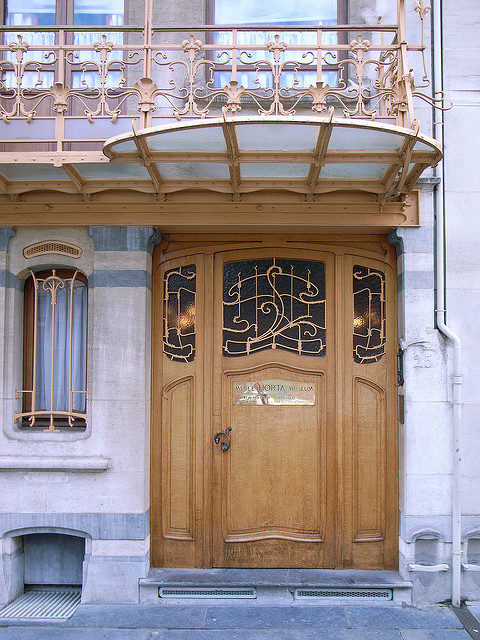
The city center is where Art Nouveau lovers would usually go for a free history lesson in architecture and to admire the incredible buildings found there. There is one man to blame for this, and that man is the Belgian architect Victor Horta, who changed the course of architectural history when in 1893 he built Hotel Tassel.
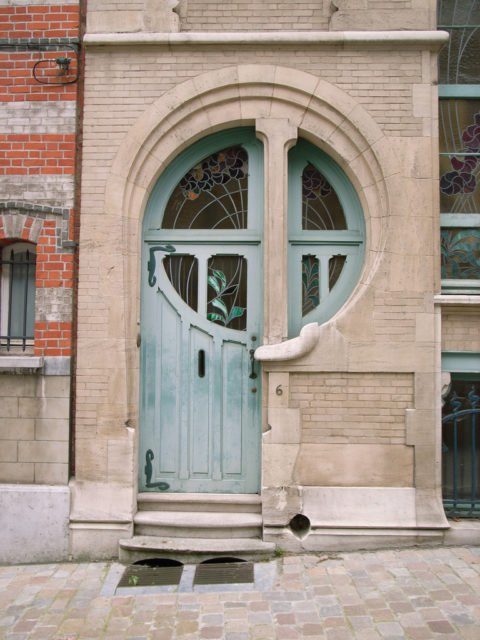
It’s been over 124 years since this building caused a sensation in Brussels, and it still does today. It never lost its charm and looks avant-garde even after so many years. However, Hotel Tassel is just a small part of what Brussels has to offer when it comes to examples of Art Nouveau and as such it holds an incredible collection of magnificent Art Nouveau doors.
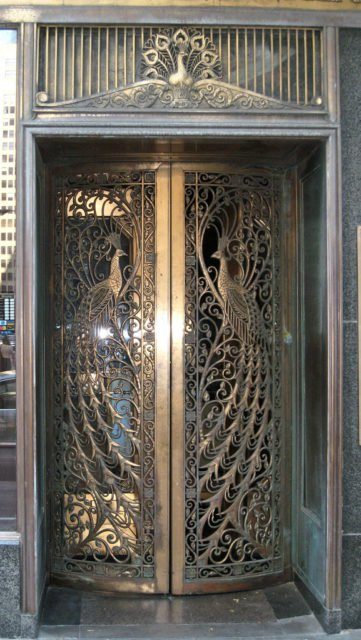
Art Nouveau architecture also had a lasting impact in France, which is no surprise since it was there where this particular style of architecture initially developed. It was first showcased in Paris, the capital of France, where it caused some mixed reactions and provoked a debate among architects, artists, and designers.
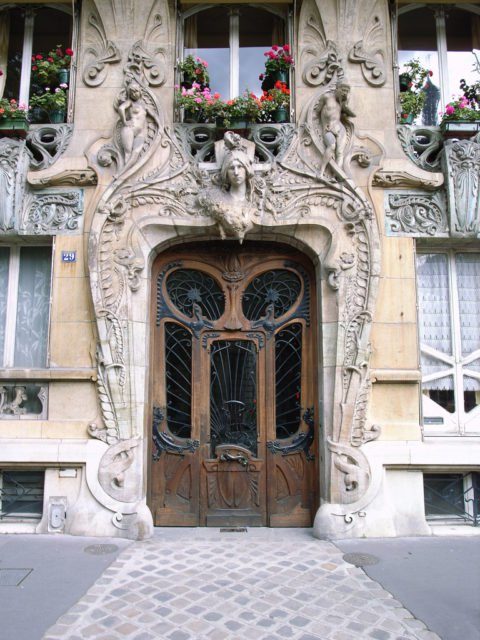
It was during the Belle Époque in Paris when many fine examples of Art Nouveau architecture and design set the city aflame. Some people loved the new style, others despised it, but it is safe to say that Art Nouveau was popularized by the famous Maison de l’Art Nouveau, in Paris and it was in “The City of Light” where it all began.
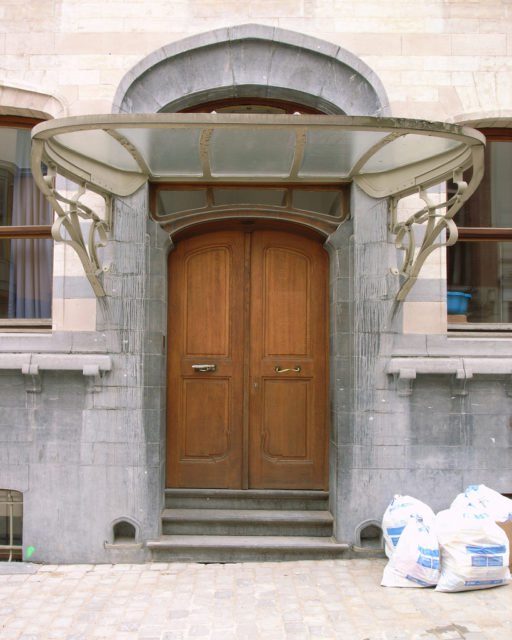
From shops to cafés, restaurants and Guimard’s Métropolitain entrances, Art Nouveau is everywhere throughout Paris and over the years it went on to become a trademark of the city.
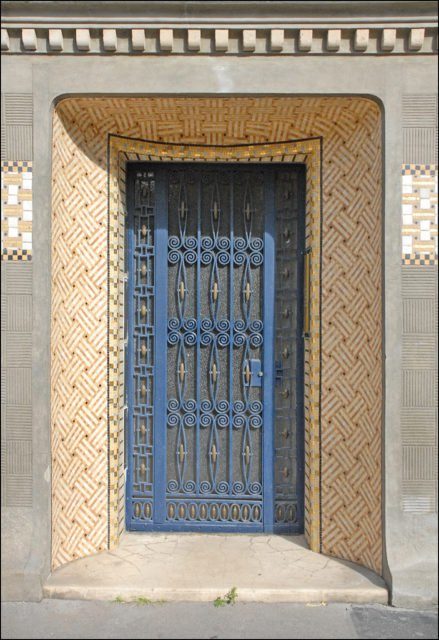
Everything started in France, but it didn’t stop there, and Art Nouveau quickly became fashionable across many large European cities, including Barcelona, Vienna, Munich, Glasgow, and Turin. The movement even reached all the way to Scandinavia, where it influenced modern Scandinavian design.
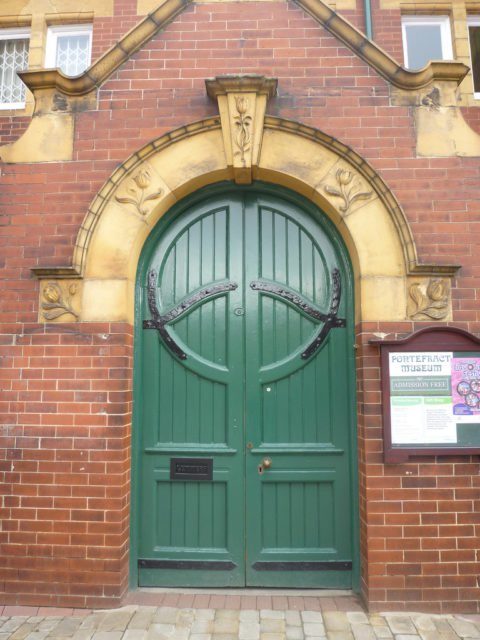
At the turn of the 20th century, when the city of Helsinki, Finland, was being built up and modernized, Art Nouveau left a lasting impact on the town as it also experienced a building boom. In present day Helsinki, there are around 600 buildings dating to the Art Nouveau era, making it the dominant style in some parts of the city.
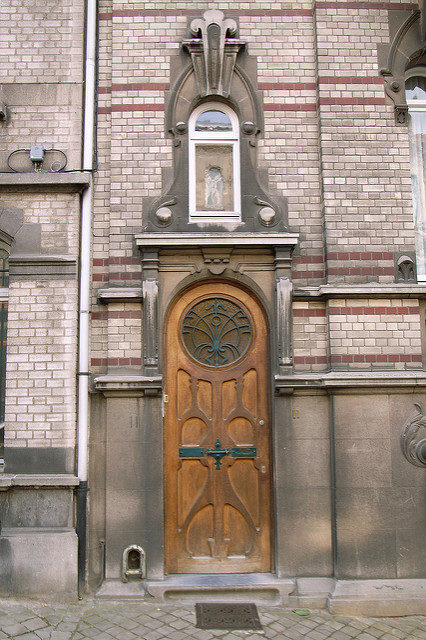
The atmosphere in the United States was no less receptive than in Europe, and Art Nouveau quickly leaped across the Atlantic.
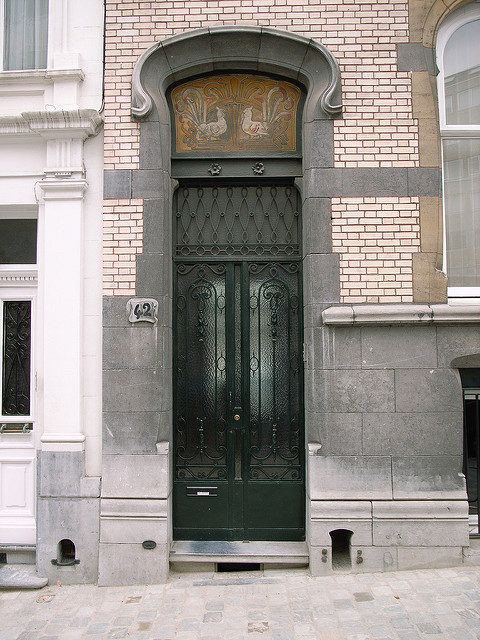
The work of American architects Louis Comfort Tiffany, Louis Sullivan, and Frank Lloyd Wright was based on Art Nouveau ideas and it inspired many others to do the same.
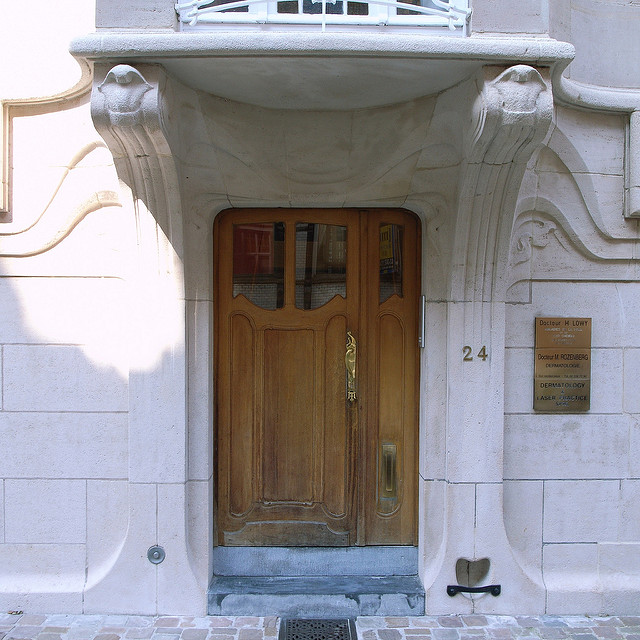
However, what was once the newest craze in architecture across the globe faded away, and by the beginning of World War One, the style was completely out of fashion.
The works of some of the greatest Art Nouveau architects did not fade away, however, and still offer a visual delight that is rarely matched.
